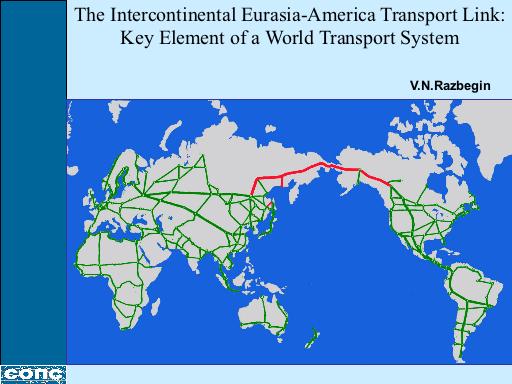View all conversation lessons. You can view all the conversation lessons that are available from basic conversation to advanced by clicking on this link These are not in any particular order. The list of basic English conversation is listed below. Basic English conversation. To view any of.
[W]hat counts as Standard English will depend on both the locality and the particular varieties that Standard English is being contrasted with. A form that is considered standard in one region may be in another, and a form that is standard by contrast with one (for example the of inner-city African Americans) may be considered nonstandard by contrast with the of middle-class professionals. No matter how it is interpreted, however, Standard English in this sense shouldn't be regarded as being necessarily correct or unexceptionable, since it will include many kinds of language that could be faulted on various grounds, like the language of corporate and television advertisements or the of middle-class high-school students. Thus while the term can serve a useful descriptive purpose providing the makes its meaning clear, it shouldn't be construed as conferring any absolute positive evaluation. (i) It is not an arbitrary, a priori description of English, or of a form of English, devised by reference to standards of moral value, or literary merit, or supposed linguistic purity, or any other metaphysical yardstick--in short, 'Standard English' cannot be defined or described in terms such as 'the best English,' or 'literary English,' or 'Oxford English,' or 'BBC English.' (ii) It is not defined by reference to the usage of any particular group of English-users, and especially not by reference to a social class--'Standard English' is not 'upper class English' and it is encountered across the whole social spectrum, though not necessarily in equivalent use by all members of all classes.
(iii) It is not statistically the most frequently occurring form of English, so that 'standard' here does not mean 'most often heard.' (iv) It is not imposed upon those who use it. True, its use by an individual may be largely the result of a long process of education; but Standard English is neither the product of linguistic planning or philosophy (for example as exists for French in the deliberations of the Academie Francaise, or policies devised in similar terms for Hebrew, Irish, Welsh, Bahasa Malaysia, etc); nor is it a closely-defined norm whose use and maintenance is monitored by some quasi-official body, with penalties imposed for non-use or mis-use. There are many books, and which describe and give advice on the standard English that appears in writing.[T]hese books are widely used for guidance on what constitutes standard English. However, there is often also a tendency to apply these judgments, which are about, to. But the norms of spoken and written language are not the same; people don't talk like books even in the most formal of situations or contexts. Mbot silkroad download.
If you can't refer to a written norm to describe spoken language, then, as we have seen, you base your judgments on the of the 'best people,' the 'educated' or higher social classes. But basing your judgments on the usage of the educated is not without its difficulties. Siva thandavam devotional mp3 songs free download. Speakers, even educated ones, use a variety of different forms. Historically, we can say that Standard English was selected (though of course, unlike many other languages, not by any overt or conscious decision) as the variety to become the standard variety precisely because it was the variety associated with the social group with the highest degree of power, wealth and prestige. Subsequent developments have reinforced its social character: the fact that it has been employed as the dialect of an education to which pupils, especially in earlier centuries, have had differential access depending on their social class background. In countries where the majority speak English as their one dialect is used nationally for official purposes. It is called Standard English.


Standard English is the national dialect that generally appears in print. It is taught in schools, and students are expected to use it in their.
It is the norm for dictionaries and grammars. We expect to find it in official typed communications, such as from government officials, solicitors, and accountants. We expect to hear it in national news broadcasts and documentary programmes on radio or television. Within each national variety the standard dialect is relatively homogeneous in,,,.
Those who do feel they have rights and privileges, who have a sense of ownership of the English language and who can make pronouncements about what is or is not acceptable, as well as those to whom these attributes are accorded by others, do not necessarily belong to a whose members learned English in infancy. Native speakers of varieties of English, in other words, the majority of native speakers of English, have never had any real authority over Standard English and have never 'owned' it. The actual proprietors may, after all, simply be those who have learned thoroughly how to use a standard English to enjoy the sense of empowerment that comes with it. • SE is a variety of English--a distinctive combination of linguistic features with a particular role to play. • The linguistic features of SE are chiefly matters of grammar, vocabulary, and ( and ). It is important to note that SE is not a matter of..
Top Articles
- Driver Strong Srt 100 Usb
- Glasspwn 11b Aero Glass For 81 And Watermark Remover
- Download Aplikasi Tembus Pandang Buat Hp Java
- Automotive Sensors John Turner Pdf
- Edius 7 2 Keygen Serial
- Sony Usb Flash Drive Format Tool
- Bleach Volume 55 Pdf Files
- Land Rover Chassis Numbers
- Id Works Datacard Serial Number Crack Software Sites
- Quo Vadis 1951 Dvdrip French
- Reshebnik Po Ritorike 3 Klass Ladizhenskaya
- Cara Membuat Antenna Kaleng Untuk Wifi Repeater